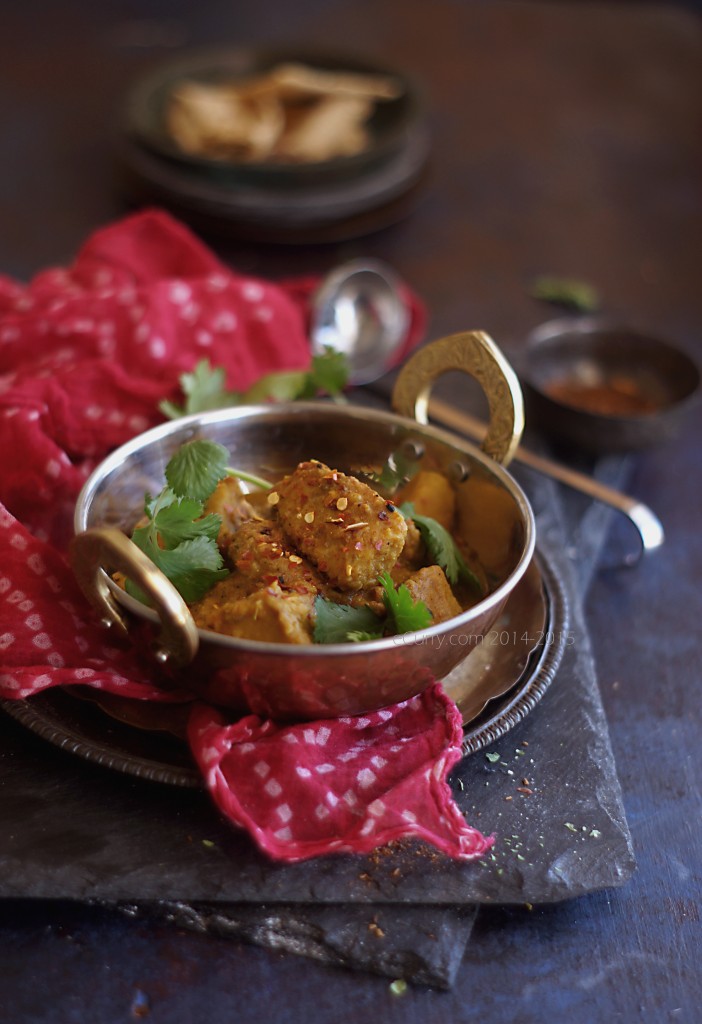
Here comes another recipe from home, cradled with memories of my times with my mamoni who was my second mother. I run my fingers over the letters of the recipe on the paper – once written and held by her. Many days and months of my life have been spent in my aunt’s home, whom I fondly called “mamoni“, ma’s sister. My ma and her sister were close in age, very different in their personalities but as close to one another as sisters could get. When we were little we spent our months of summer vacation in Baharampur, Murshidabad in my aunt’s bungalow.
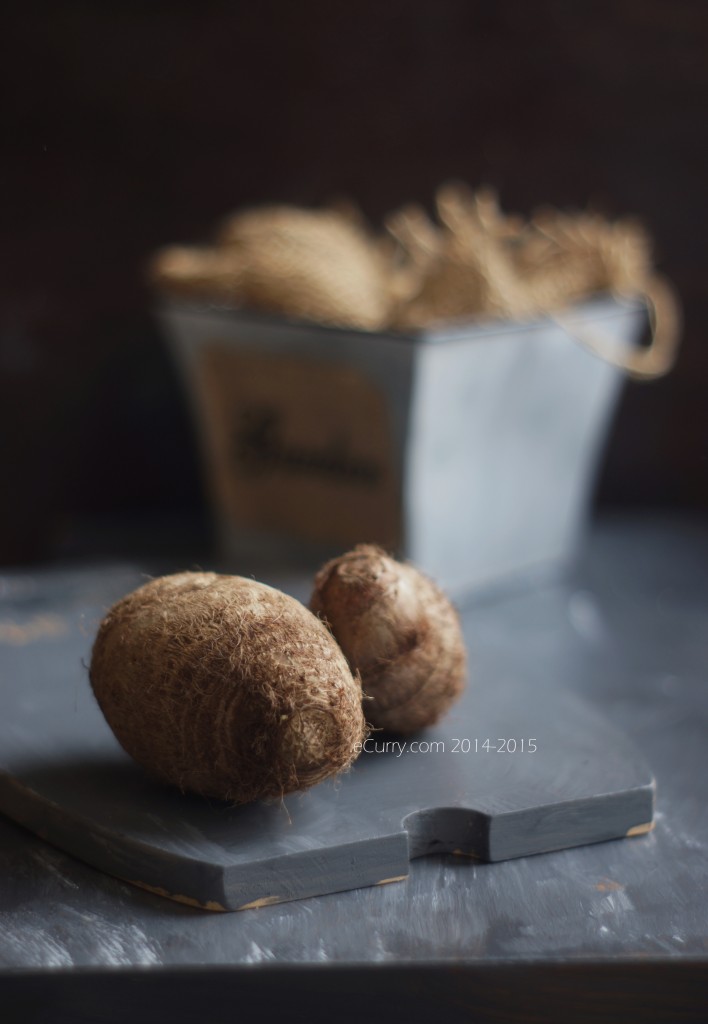
The house was set on an enormous property sprawled out by the river Ganges. Long courtyard surrounded the home where I played with my cousin sisters. The house appears crystal clear in front of me even if I am talking of a time more than thirty years back. The red couch in the living room, the mysterious spiral stairs that led to the attic, the large dining room with the dining table placed horizontally on one far end – the place where we had sumptuous meals and also fought over the fish eye and the number of prawns to be shared. A place where my little cousin sister would throw her tiny steel glass on the floor if it was not her turn to have the eye of the fish.
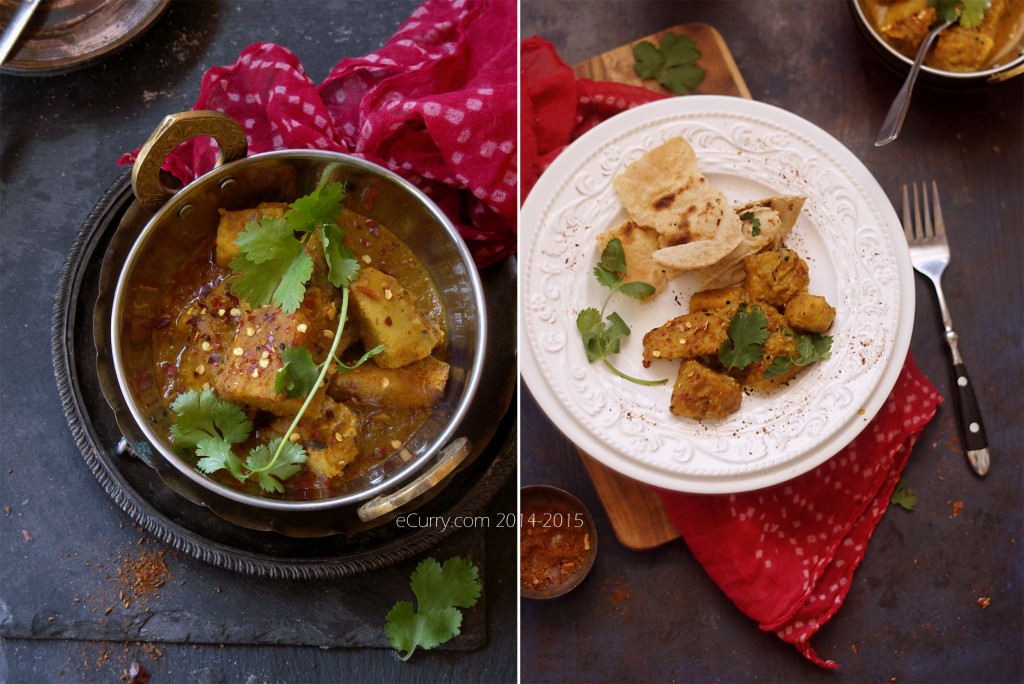
We could see the window for the master bath as we approached the home on riverboats. I stood breathlessly on the boat waiting to see if I could spy my cousins wave.
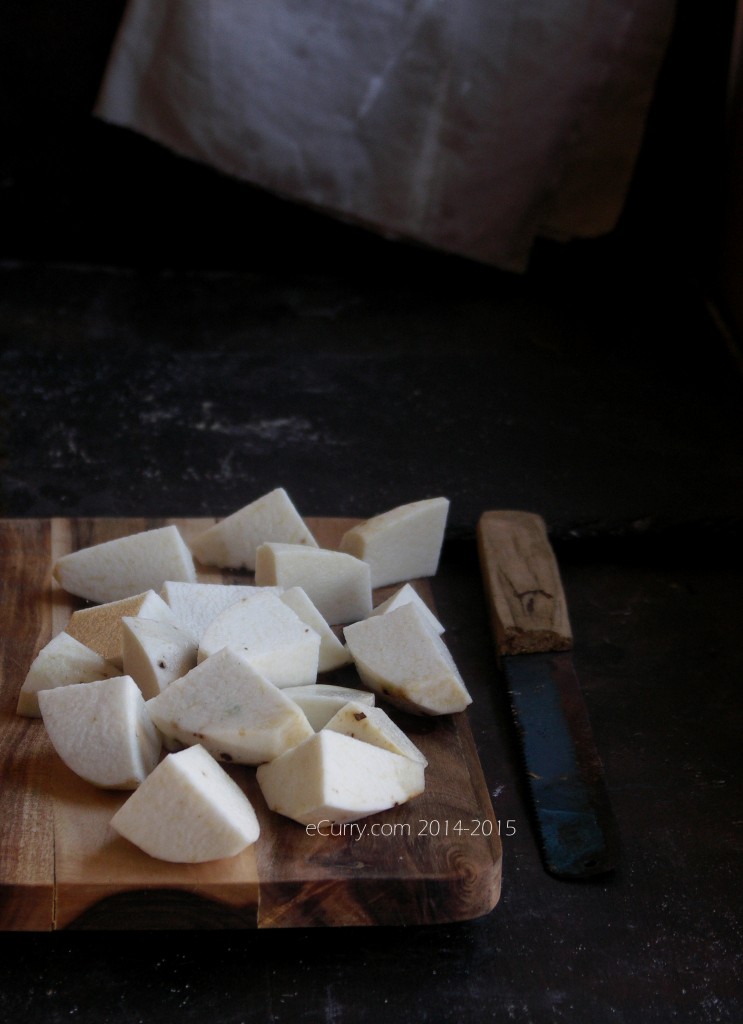
The verandah opened to the outside via large arches and we rocked on a rocking horse which was as tall as we were. On the other side was an open courtyard lining the kitchen. A small door from the dining room led to this courtyard. We watched the river across the boundary walls while we stood here. On the left was the “tubewell” or the hand operated water pump. This was where we washed up after we ate the sweet summer mangoes with juice running down our sticky arms and cheeks.
The drawers in the hutch of the living room had some yellow silk worms and once in a while I liked to pull on the knobs cautiously to peek in. I do not know why they were there. The living room opened to a small stair case which opened to a partially covered porch and which in turn led to the vast green fields where we ran with air fingering through our hair.
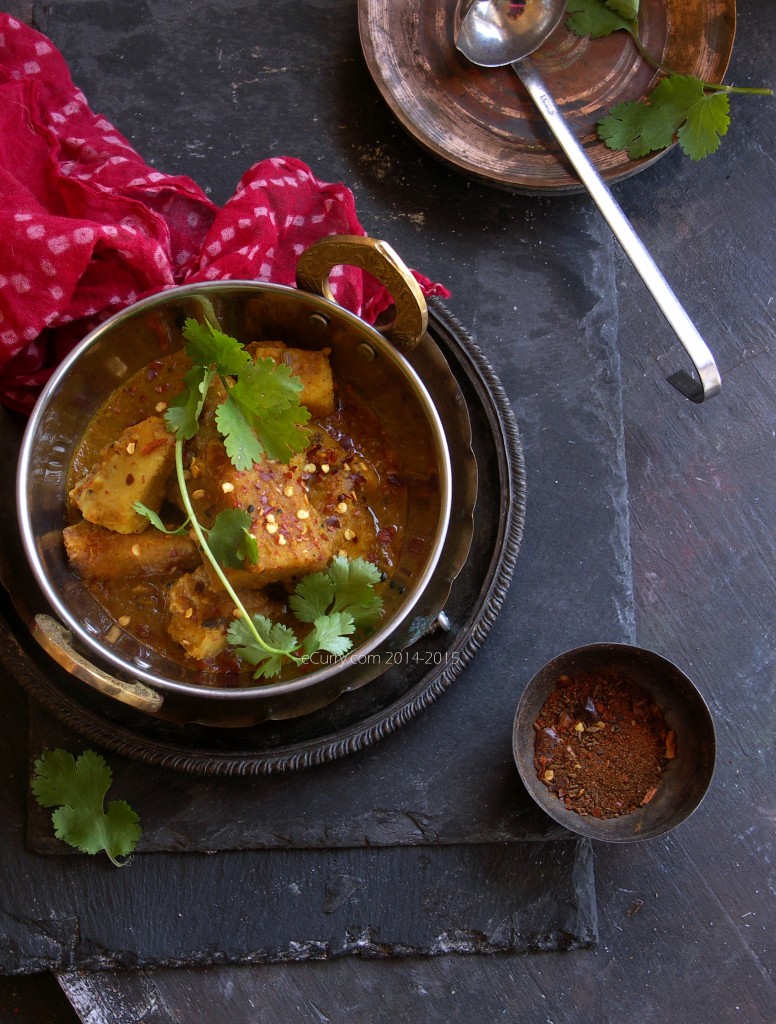
Then there was “jaaler ghor“, a smaller room with a door which had the net or the wire mesh on it. Hence the “jaaler ghor”. This used to be our playroom where innumerable pretend play and drama took place.
This was the place where “babla” (Acacia) and “kodom” trees lined the boundary walls. We spent our unstructured, routine free afternoons seeking out nests and baby birds in tree holes. We sat under the shades of the trees and picked the perfect kodom flowers to bring home. We played tic tac toe on the large wooden chowki on the veranda. These are the times gone by leaving sweet trails of memories. I do not know what happened to the house. If it has changed, I do not want to know.
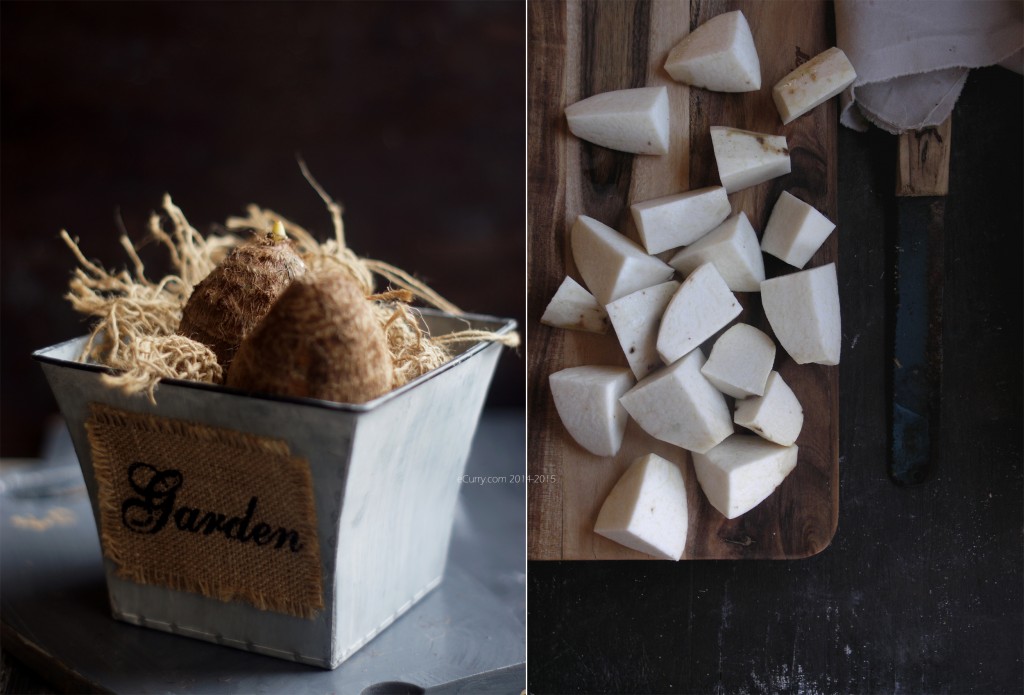
Then they moved to Calcutta. closer to us. Another era begins here which I will speak of another day. The tall three story yellow building with green shutters still stands by YMCA on the Lindsay street. Memories here span times way longer than in Beharampur. They are recent and fresh. A good number of my college days were spent here.
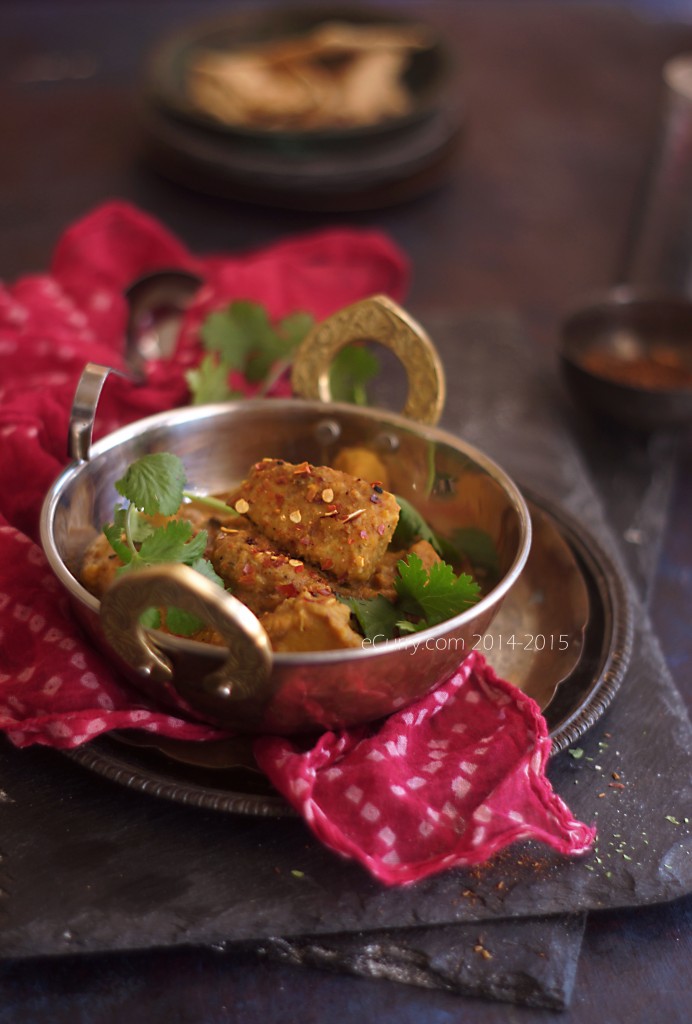
Mamoni’s cooking had a distinctively different style than my ma’s. I am glad life ‘offered me a chance to savor the good of both. There are many recipes I wish I could cook like mamoni’s. The taste of her “muger dal” or yellow mung, still lingers in my mouth. The carrot halwa she made was sticky, with a deeper hue which always reminded me of soaked fruity candies. Soy roasted chicken is something I have tried to make before. And so many more.
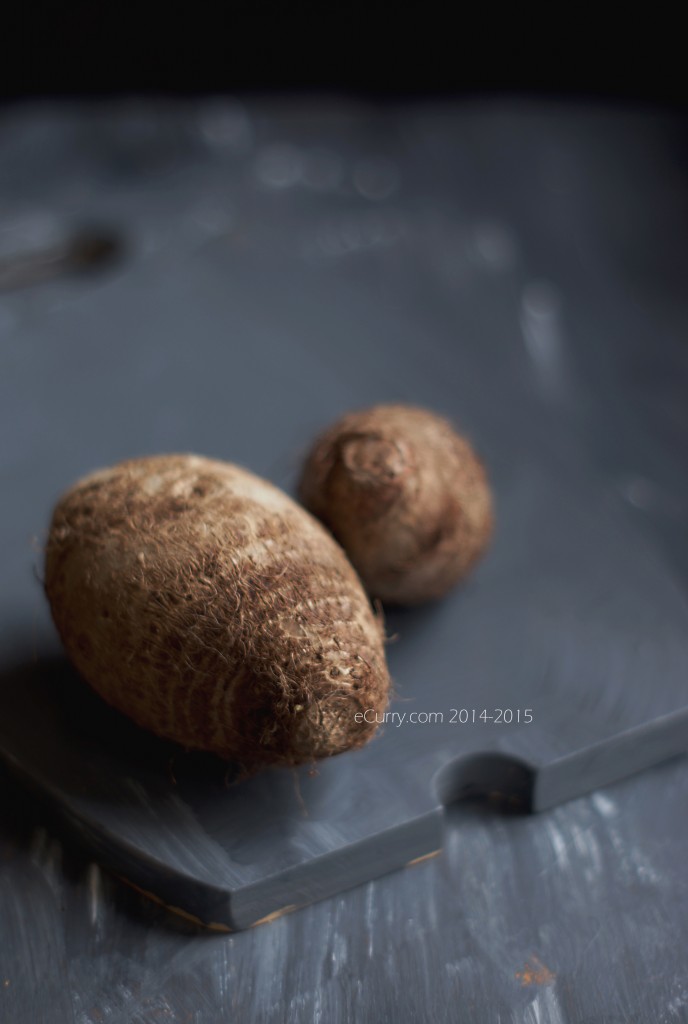
She had written down this recipe for me along with a few others. There was no exact measurements. Grandmothers and mothers never measured when they cooked. The recipe was one small paragraph stating the ingredients and the procedure. Mine did not quite turn out to be what I remembered, but it was close. Now I have another page of memory saved.
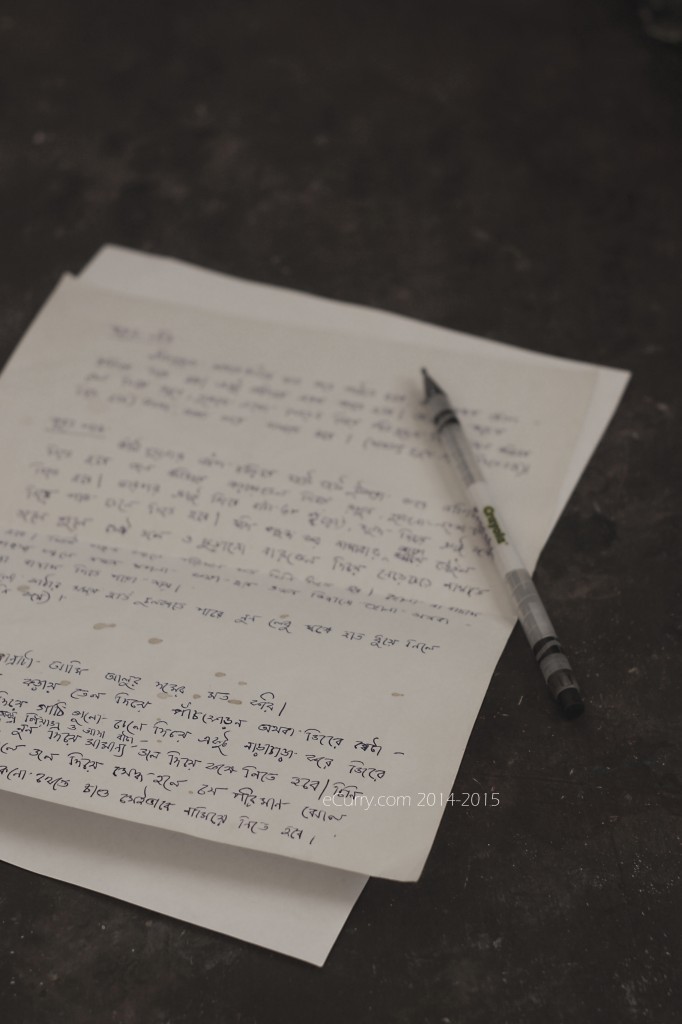
Colocasia esculenta or taro is cooked in different ways in different homes. I had posted a crusted snack with it a while back. In Indian cuisine these are often treated as potatoes. Today’s recipe is simple and comforting. Simple reminders of beautiful days gone by.
In memory of my mamoni and all the love that you showered on me; of whom I have been thinking a lot of lately. You will always be with me.
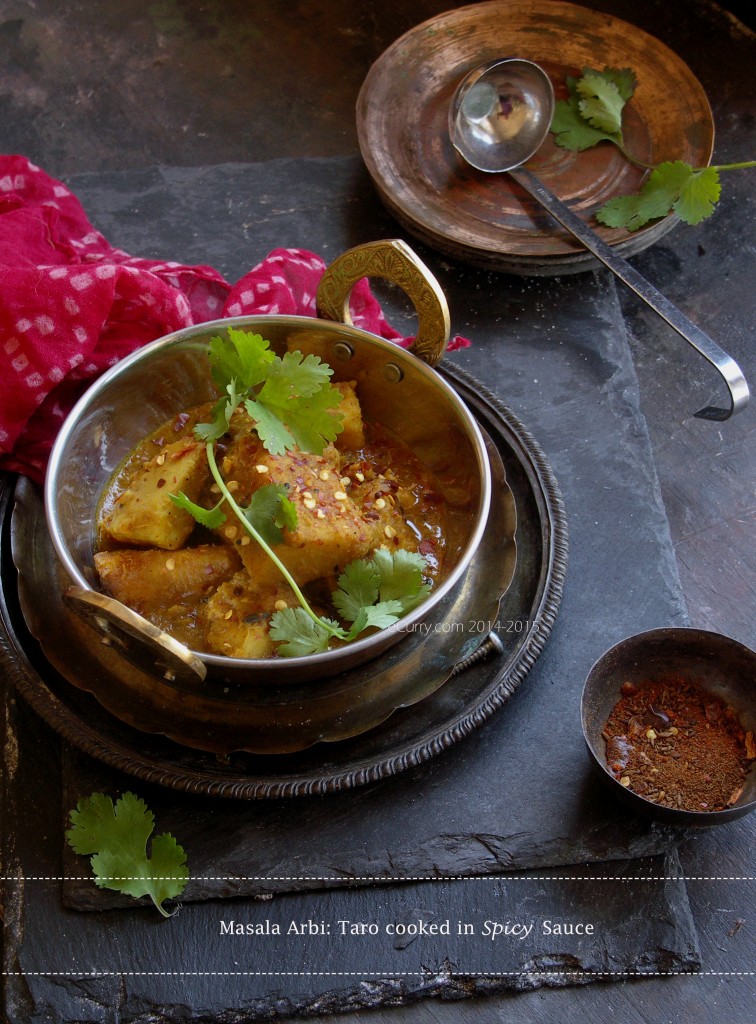
Masala Arbi: Taro cooked in Spicy Sauces
Ingredients: (serve 2-3 as a side)
- 2 large arbi/taro root, peeled and cubed in 4-6 each – depending on the size
- 2 tablespoon oil + 1 tablespoon
- 1-2 dry whole red chili pepper
- 1 hot green chili pepper, slit
- 1/2 teaspoon cumin/or panch phoron
- 1 tablespoon finely chopped onions + 1 tablespoon grated onion
- 1 tablespoon ginger paste or grated fresh ginger***
- 1/2 teaspoon turmeric
- 2 teaspoon freshly ground coriander powder
- 1/2 teaspoon cumin powder (pound cumin seeds to a powder or use a spice/coffee grinder)
- salt to taste
- fresh cilantro for garnish
***Notes:
- Adjust amount or chili peppers and chili powder to taste.
- For a “no onion & garlic version”, you may omit the onion.
Method:
Peel the taro/arbi/colocasia and slice them. Set aside.
Heat one tablespoon oil in a wok/kadhai/pan. Sprinkle a tiny bit of salt on the taro, toss and shallow fry them at high to medium heat, while tossing once in a while, until the edges start to brown. Remove from the wok and set aside.
Add the rest of the oil to the same wok. Add the cumin or the Panch Phoron (Bengali 5 spice mix), the dry chili pepper, green chilli pepper.
When the seeds pop, add the chopped onions and cook until they start to brown. Then add the onion paste and the ginger paste. Lower the heat and cook while stirring frequently so the spice mix does not stick to the bottom of the pan. Cook until the spice mix starts releasing oil. It ill reduce in amount and when close to done, you will see the oil sizzle. Do not over cook or have it turn dark brown. As it gets closer to getting done, watch closely as it will burn pretty quick.
Now add the powdered spices and salt (turmeric, chili, cumin and coriander). Stir them in and add the fried taro/arbi. Toss well until the spice mix coats the pieces. Cook for a couple of minutes on high heat and then reduce heat, add about 1/2 cup of water and tightly cover the wok. In about 10 – 12 minutes, uncover to check if the arbi/taro is cooked through not tender enough that it mushes up. but . If not check water. Add warm water if required and cover it back. It should have just enough sauce to coat the arbi/taro. But if you want more sauce, feel free to add more water.
When done adjust salt and garnish with fresh cilantro.
Preparation Time: 15 minutes
Cooking Time: 20 minutes – 30 minutes
Difficulty Level: Easy
Serves: 2-3 as side
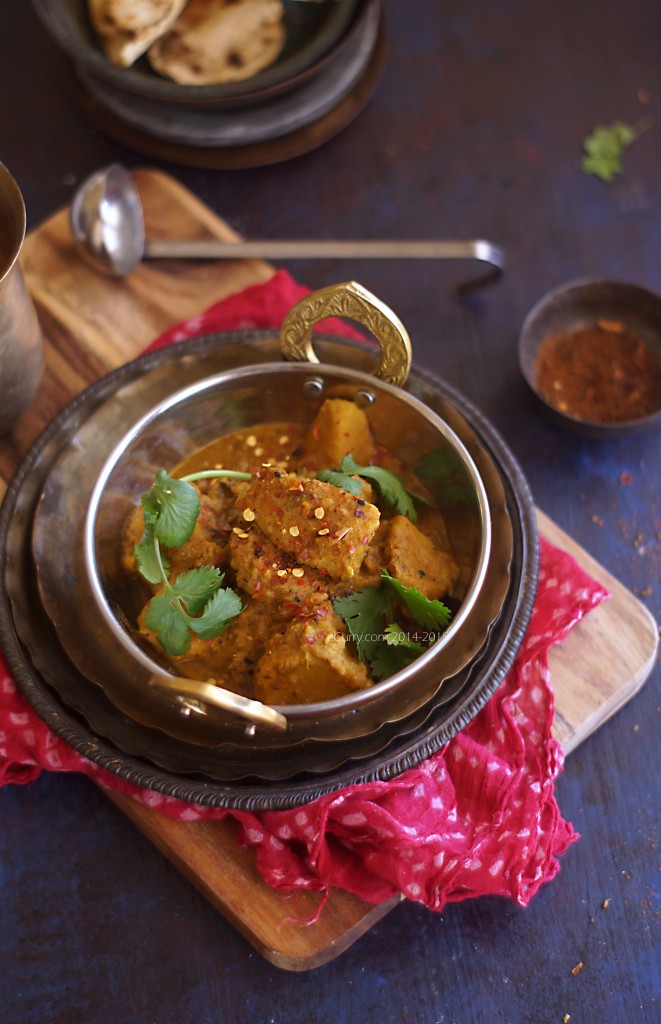
Related Posts:
- Arbi Fry: Chickpea and Spice crusted Taro
- Aloo Matar/Peas and Potato Curry
- Curried Potato and Cauliflower Stew with Toasted Peanuts
- Dum Aloo: Potatoes Simmered in Spices & Coconut Milk
- Kashmiri Dum Aloo: Baby Potatoes cooked in Fragrant Spices and Yogurt Sauce
- Keema, Matar, Aloo: Minced Meat with Peas and Potatoes
- Khatti Meethi Lauki – Sweet and Sour Bottle Gourd
- Lauki Chana Dal – Soupy Lentils with Bottle GourdMakhani Gobi: Cauliflower in Creamy Tomato Sauce
- Malai Kofta/Cheese Dumplings Simmered in a Creamy Sauce
- Pakore Wali Kadhi (Fried Onion Dumplings in Yogurt Sauce)
- Safed Paneer: Indian Cheese Cooked in Rich White Sauce

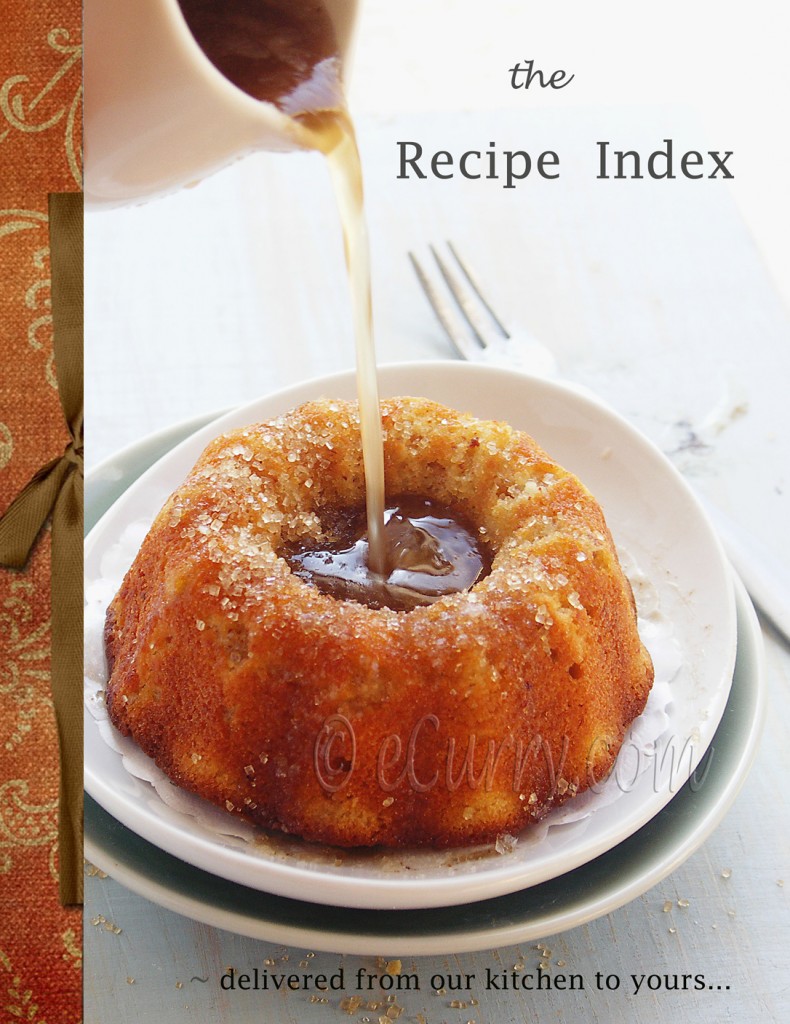
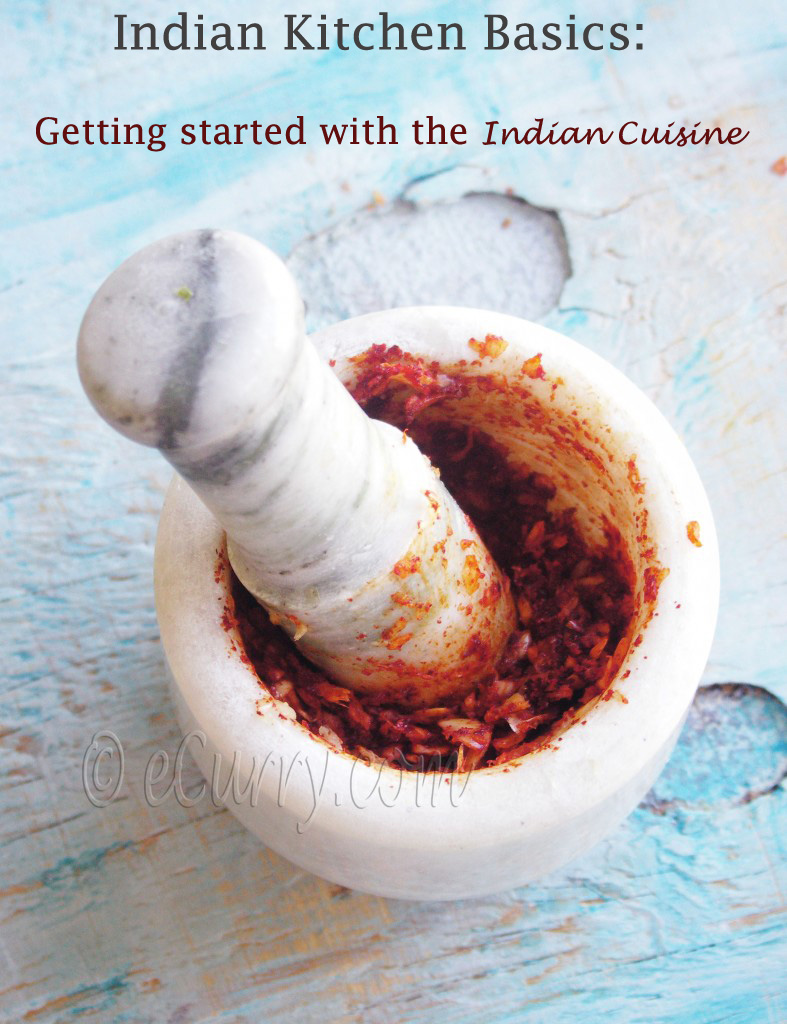
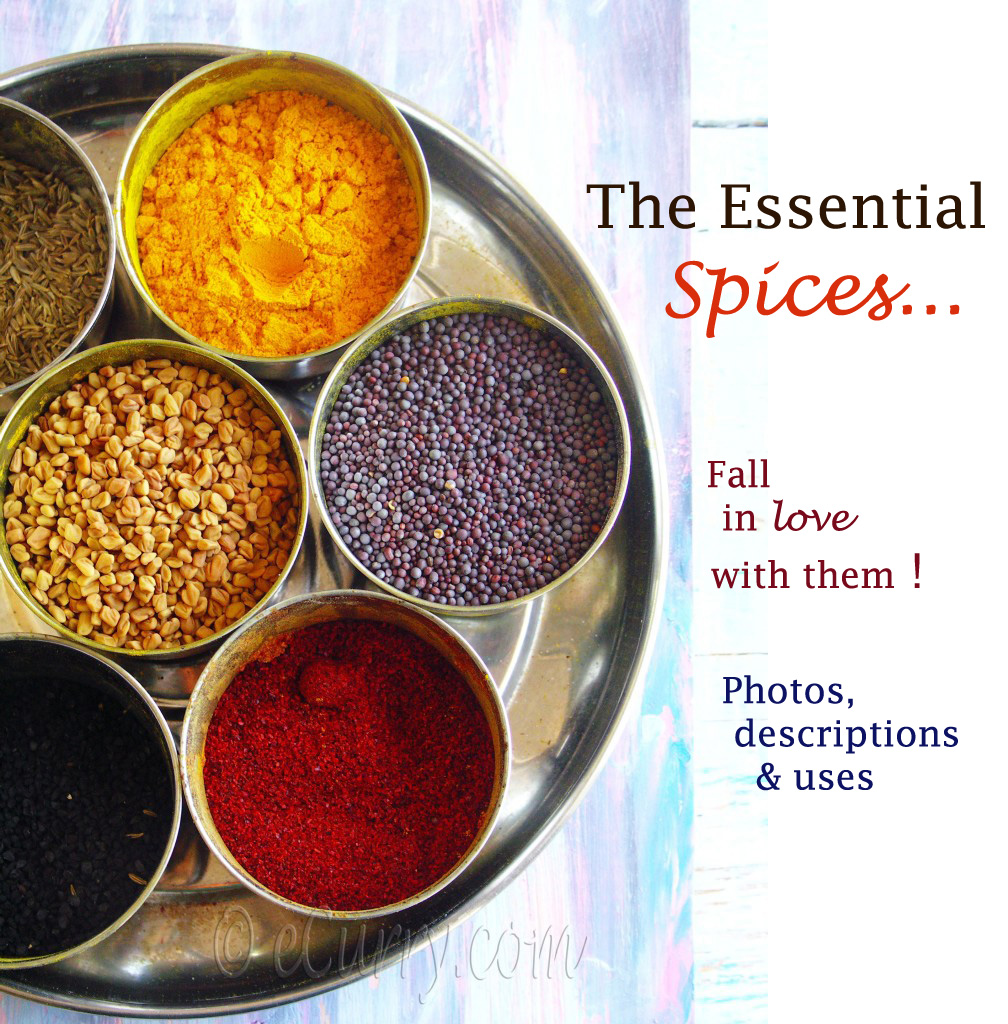








A very interesting curry! It looks so appetizing.
Cheers,
Rosa
Ahhh! One of my favorites too. My maa makes it with tiny shrimps. I never made it fearing I won’t be able to reproduce her taste 🙁 It’s must when she visits us or I visit India. Yours look very tempting.
just beautiful writing…I did not yet come to the recipe part, I can not take my eyes and mind off the nostalgic writing….love you didi.
Such a lovely post…lovely introduction write up..we all have such childhood memories….hence easy to relate and feel good about it.
Keep it up..
cheers,
d
Dear Soma,
I have just returned from our 9 month sailing trip (the second leg of our round the world voyage) and am able to catch up with you. I now know that I am home when I again can settle on my sofa in front of the fire and read your delicious words. Along with your incredible photos your words evoke images within which I can immerse myself. I too can live in your memories.
Thank you.
All the very best
Cath
P.S. I am going to make your chicken recipe today… for dinner tomorrow! And continue to create our own culinary memories.
What a beautifully written post Soma. A page full of memory indeed, to be cherished for ever.
I love dishes entwined with happy childhood memories.
Another lovely post and gorgeous pics.
Never had taro – now I’m very curious and will have to get some!
PS- Beautiful handwriting.
I love ur pic and ur website. My neighbour infrance was an indian and she teach me a lot of indian recipe.thank u for ur succulentes recettes
What a beautiful post, as I was reading I could visualize footsteps of kids walking around a huge n beautiful home, believe it or not made me so nostalgic, as those it was my story. Nothing can bring back time that’s gone by, all we have is memories… Beautiful story and as usual your photography as you signature style, rustic, homely and artistic.
Always love reading your childhood memories Soma… Missed them too, as I haven’t been around here for a while! And thanks also for telling me how those taro’s are called! I had seen them in our supermarket in the exotic section but I had no idea what it was… 🙂 now I do! Gorgeous photos as always!
Ahhh! One of my favorites too. My maa makes it with tiny shrimps. I never made it fearing I won’t be able to reproduce her taste It’s must when she visits us or I visit India. Yours look very tempting.
Lovely pics and I always find Bengali handwriting is a piece of art 🙂
Have never tried taro… Your curry looks delicious.